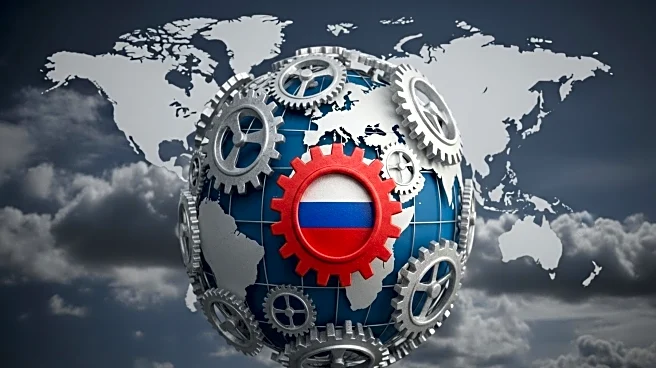What is the story about?
What's Happening?
The European Union has announced its 19th sanction package targeting Russian energy and tankers, expanding its list to include 560 vessels, surpassing the UK's 495. The sanctions aim to curb Russia's oil revenues, which have reportedly decreased by 90 percent. The package includes bans on transactions with Russian companies Rosneft and Gazpromneft, and extends to international refineries, oil traders, and petrochemical companies in third countries, including China. Additionally, the EU proposes restrictive measures on crypto platforms and prohibits imports of Russian LNG into European markets. The sanctions are part of a coordinated effort with G7 partners, and Australia has also announced similar measures.
Why It's Important?
These sanctions represent a significant escalation in the EU's efforts to pressure Russia economically, potentially affecting global energy markets and international trade. By targeting Chinese entities and crypto platforms, the EU is broadening its scope to prevent sanction evasion. The measures could lead to increased tensions between the EU and Russia, impacting diplomatic relations and economic stability in the region. Industries reliant on Russian energy may face disruptions, prompting shifts towards alternative sources and affecting global energy prices.
What's Next?
The sanctions require full approval from EU member states, and their implementation will be closely monitored. The EU's alignment with G7 partners suggests further international cooperation in sanctioning Russia. Potential reactions from Russia could include retaliatory measures or attempts to circumvent sanctions, impacting global diplomatic and economic dynamics. Businesses and governments will need to adapt to the changing landscape, possibly accelerating the transition to renewable energy sources.
















